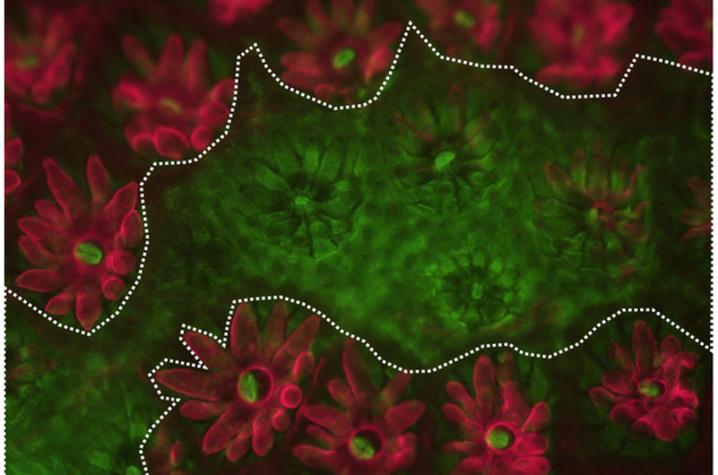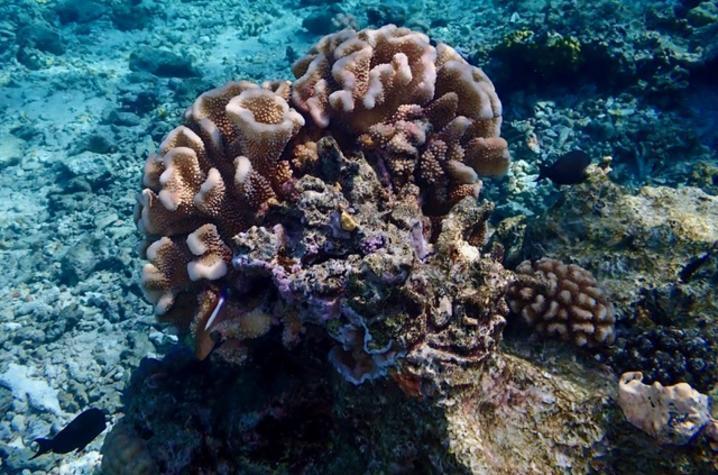
LEXINGTON, Ky. (Nov. 6, 2024) — A new research project is investigating how coral reefs heal from damage and withstand environmental threats, particularly those associated with climate change.
A three-year, $1.3 million grant from the W. M. Keck Foundation is funding the multicampus collaboration, with U.C. Santa Barbara leading the effort.
“Our primary goal is to develop a comprehensive model that links coral tissue damage and regeneration with overall colony growth, reproduction, survival and response to thermal stress,” said Adrian Stier, lead researcher and professor in the Department of Ecology, Evolution and Marine Biology at U.C. Santa Barbara.
Although the nearest coral reefs to Kentucky are roughly a thousand miles away in Florida, the University of Kentucky’s Ashley W. Seifert, Ph.D., is lending his expertise to the project as one of the research partners.

“We aim to reexamine the assumption that energy moves from healthy parts of a coral colony to help heal damaged tissue by tracking damage signals at a molecular level,” said Seifert, an associate professor in the Department of Biology in the UK College of Arts and Sciences. “By integrating temperature into our experiments, we hope to better model cellular resilience in corals and identify key factors that facilitate regeneration.”
Seifert’s work has focused on the science behind how spiny mice can regenerate lost tissue and using that knowledge to trigger regeneration in other types of mice.
The coral regeneration research team also includes experts from UC Davis and University of Georgia. Read more about this study online.
Since 1950, the world has lost half its coral reefs. The Keck Foundation’s support marks a step in the mission to preserve these essential ecosystems.
As the state’s flagship, land-grant institution, the University of Kentucky exists to advance the Commonwealth. We do that by preparing the next generation of leaders — placing students at the heart of everything we do — and transforming the lives of Kentuckians through education, research and creative work, service and health care. We pride ourselves on being a catalyst for breakthroughs and a force for healing, a place where ingenuity unfolds. It's all made possible by our people — visionaries, disruptors and pioneers — who make up 200 academic programs, a $476.5 million research and development enterprise and a world-class medical center, all on one campus.
In 2022, UK was ranked by Forbes as one of the “Best Employers for New Grads” and named a “Diversity Champion” by INSIGHT into Diversity, a testament to our commitment to advance Kentucky and create a community of belonging for everyone. While our mission looks different in many ways than it did in 1865, the vision of service to our Commonwealth and the world remains the same. We are the University for Kentucky.
